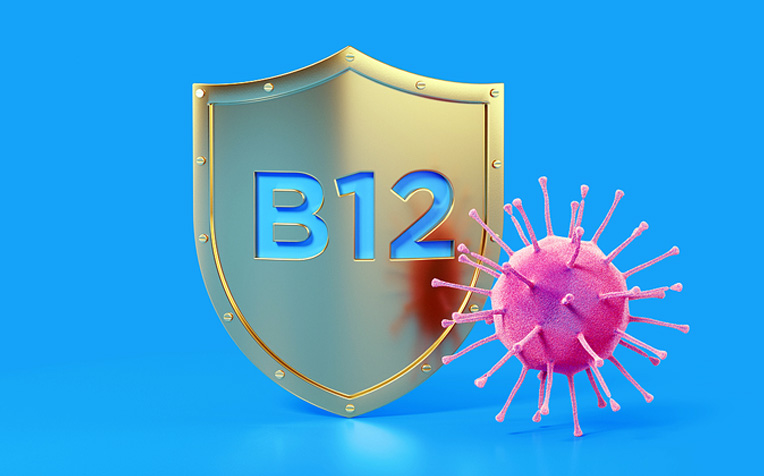
Memory lapses and a tingling sensation or numbness in your hands and feet may be signs of vitamin B12 deficiency. Vitamin B12 is one of eight water-soluble vitamins in the vitamin B complex group.
Vitamin B is found almost exclusively in animal products such as eggs, fish, meat, and dairy products. If you are on a strict vegetarian or vegan diet, you should make sure you have more vitamin B12 fortified foods to maintain a healthy nervous system and healthy red blood cells. You may also want to consider taking a vitamin B12 supplement.
"The body needs vitamin B12 to form red blood cells, maintain healthy neurological function and support DNA synthesis," advises pharmacists from
Changi General Hospital (CGH), a member of the
SingHealth group.
Read more:
Vitamin B - Best food sources and signs of deficiency
8 Types of vitamin B and their benefits
B vitamins are important for cell metabolism, energy production and formation of red blood cells. They work together to maintain healthy skin, hair and eyes, as well as healthy nerves, heart and muscles.
Read more:
Vitamin C - Having just one cup of this will meet your daily dietary need
The main functions of the vitamin B include:
Vitamin B1 (thiamine) |
Helps conversion of carbohydrates
Essential for the heart function
Maintains healthy nervous system
|
|
Vitamin B2 (riboflavin) | -
Essential for cellular growth
-
Supports red blood cell production
-
Maintenance of vision, mucous membranes, skin, hair and nails
|
|
Vitamin B3 (niacin) | -
Converts calories from carbohydrates, proteins and fats into energy
-
Promotes a healthy digestive system
-
Maintains healthy skin and nerves
|
|
Vitamin B5 (pantothenic acid) | -
Supports intermediary metabolism of fatty acids
-
Aids in the synthesis of steroid hormones
-
Aids in the release of energy from carbohydrates
|
|
Vitamin B6 (pyridoxine) | -
Required for amino acid metabolism
-
Converts carbohydrates and fats into energy
-
Aids in the production of red blood cells
-
Aids in the proper function of nerves
|
|
Vitamin B7 (biotin) | -
Required for amino acid metabolism
-
Converts carbohydrate and fats into energy
-
Essential for DNA synthesis and cell replication
|
|
Vitamin B9 (folate or folic acid) | -
Crucial for proper brain function
-
Aids in the production of the body’s genetic material, especially when cells and tissues are growing rapidly, such as in infancy, adolescence and pregnancy
-
Required for red blood cell maturation
|
|
Vitamin B12 | -
Involves in the cellular metabolism of carbohydrates, fat and protein
-
Production of red blood cell in the bone marrow
-
Needed for formation of myelin (nerve sheaths), proper function of the nervous system
-
Aids in the synthesis of DNA
|
Read more:
Is it possible to overdose on vitamins?
--
Articles on
HealthXchange.sg are meant for informational purposes only and cannot replace professional surgical, medical or health advice, examination, diagnosis or treatment. Photo courtesy of iStock.